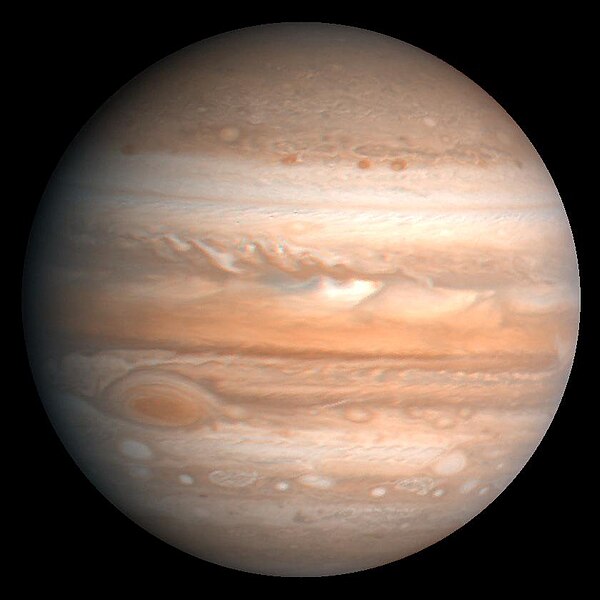That is, the God to which many scientists refer. I am ashamed to say that I had never seen anything through a telescope. I know many do when they are in school, but alas, I never did. Tonight I rectified that by driving an hour or so out of the city to a private observatory and was taken on a guided tour.
 It was two and a half hours of bliss. I stood in awe at the vastness of the small section of the universe I could observe. The first thing I ever saw through a telescope, I'm glad to say, is the one thing I wanted to see the most: Saturn. Saturn was simply gorgeous. The rings were marvelous.
It was two and a half hours of bliss. I stood in awe at the vastness of the small section of the universe I could observe. The first thing I ever saw through a telescope, I'm glad to say, is the one thing I wanted to see the most: Saturn. Saturn was simply gorgeous. The rings were marvelous. And Jupiter? I arrived at the observatory around 10pm. At that point, there were trees in the line of sight of the telescope to Jupiter. Given how low it was in the sky, I was afraid I would not be able to see it during my guided tour. I wound up staying for two and a half hours, though.
And Jupiter? I arrived at the observatory around 10pm. At that point, there were trees in the line of sight of the telescope to Jupiter. Given how low it was in the sky, I was afraid I would not be able to see it during my guided tour. I wound up staying for two and a half hours, though.The rest of my tour consisted at staring at all kinds of things, including a distant galaxy. We spent time looking at some Messier objects, including the Lagoon Nebula along with some globular clusters. I enjoyed the globular clusters. I got to see the remnants of some star that I forget the name of from, I believe, ten thousand years ago (according to Young-Earth Creationists like Ray, would place it about four thousand years before it was even created). It was just all so fascinating.
Throughout the tour, I kept watching Jupiter. So what was the last thing I got to see in a telescope? Jupiter :-) I not only got to observe the bands on Jupiter, I also got to see all four Galilean moons. Awesome. Awe-some. I spent the most time looking at Jupiter.
I had such a wonderful time observing the sky. Not just through the telescope, but also with the naked eye. I have rarely spent much time outdoors not in the city. When I have, I have not paid much attention to the sky. I did last night, though, being way out of the city. Stars filled the sky and I got to clearly see the Milky Way's band of light (that stuff that we can't see, according to Ray) across the sky. That was also something I have never seen before, outside of computer images and planetarium simulations.
It was truly a marvelous experience and one I am planning on having the next time I am in these parts again. I did not come to a rational, skeptical atheist after science. I came to science after becoming an atheist. I remember quite distinctly that I never liked science. I was not anti-science, I just did not appreciate it. I became an atheist, though, probably around two to three years before becoming interested in science.
Once I started listening to theists' claims against science and for religion, such as the watchmaker analogy, attacks against evolution, biology, cosmology, etc, they were quite persuasive. To an ignorant person, the watchmaker analogy is quite powerful. To an ignorant person, the arguments against "millions of years" are quite powerful. To an ignorant person, the arguments against evolution are exceptionally powerful. And to the ignorant person, "teach the controversy" and "equal time for competing theories" is the only rational argument. I started investigating the claims, though, by studying science (not propaganda), and soon found that they had just as much weight to them as the Modern Geocentrists.
I gained quite an affinity for science while studying. Not just because I learned so much more about the way things work, but because my sphere of understanding expanded greatly. It changed greatly the way I thought. Studying Einstein's theory of relativity alone caused quite a shift in my thought. It made me realize you should never reject a claim due to "common sense" or due to personal incredulity. I love to learn about all things as I love gaining knowledge, learning new perspectives, and rejecting previously held positions. As science is the study of knowledge, no intellectual pursuit is more prosperous. Anti-science is truly anti-knowledge.

No comments:
Post a Comment